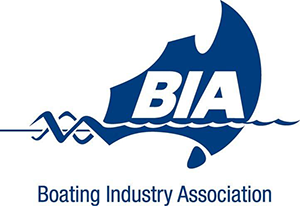CHOOSING THE CORRECT BOAT ROPE
What marine rope is right for you
CHOOSING THE CORRECT MARINE ROPE
Material:
Material:
1. Dyneema (UHMPE) has the highest strength of any rope and is traditionally used as a braided core, covered with diamond double braid polyester for easy handling. Dyneema has a significant price premium and is recommended for halyards, replacing traditional stainless wire.
2.Nylon (polyamide) has the highest elasticity and strength compared to polyester and polypropylene, high UV rating, excellent abrasion, rot, mildew, marine growth, and chemical resistance and is recommended by Whitsunday Discount Marine for dock-lines and mooring/anchor lines. It has high shock absorbance properties.
Nylon rope does not float.
3. Polyester has 25% less elasticity than nylon rope, high UV rating, excellent abrasion, rot, mildew and chemical resistance and is recommended by Whitsunday Discount Marine for rigging. Polyester rope does not float.
4. Sllver rope (polypropylene) floats on water. The downside to polypropylene is it degrades over time from UV rays and it is not as elastic as Nylon. Silver rope is only recommended to be used for transient moorings and not where permanent dock-lines are required.
Colour:
Did you know? All breaking and safe working loads are quoted for white filaments only. When a filament is coloured, the yarn is first treated before dying. This process can reduce breaking and safe working loads by as much as 20%. It is common practice for manufacturers/retailers to quote breaking loads for pure white ropes across their range, no matter what percentage of coloured fibre is used. In double braided style ropes, the core is always white for maximum strength. Whitsunday Discount Marine quotes average breaking and safe working loads across the colour spectrum for a more realistic value.
Weave:
1. Twisted Rope or Laid Rope is a type of rope consists of several strands of fibre twisted together. Each strand is also twisted from smaller strands. The strength of the rope will be determined by the number of strands and also the type of fibre. Twisted rope can further be classified as follows:
- Three-strand: this line consists of three strands. The most popular stranded rope which is easy to splice.
- Four Strand: this line is made from four instead of the usual three strands.
- Multiple strands or cable-laid line: the line comprises of more than four strands making it extremely strong.
2. Braided Lines are highly elastic, have more strength than three strand ropes and are attractive and long wearing. They are either single or double braided for greater strength:
- Solid braid: This line is very strong and won’t fray after cutting. Very hard to splice.
- Diamond Braid – no core: this is the simplest type of braided line. Since it doesn’t have a core, splicing the ropes is relatively easy.
- Diamond Braid - with core: this line comes with a solid core thus making it quite strong. Splicing is harder than with diamond braid-no core. This is the strongest and most reliable of all braided ropes. This type of double braided rope is used exclusively by Whitsunday Discount Marine.
Whitsunday Discount Marine recommends nylon (polyamide) and polyester in preference to polypropylene (silver) for mooring, docking and anchoring.
The majority of rope sold in the North American leisure marine market is nylon. The majority of rope sold in the European and Australian leisure marine market is polyester.

